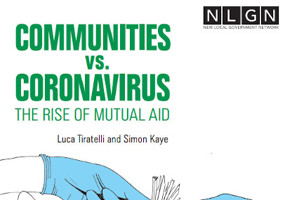Volunteers are at risk of burnout due to the pressures of the pandemic, according to a report from the National Council for Voluntary Organisations (NCVO), published today.
Time Well Spent: Impact of Covid-19 On the Volunteer Experience found that health was a major barrier to volunteering during the pandemic, which led to a shift to online activities.
It says some volunteers felt guilty during the pandemic because they were unable to help as much as they wanted, which has led to emotional fatigue and burnout.
NCVO urged charities to prioritise supporting and rebuilding the emotional wellbeing of volunteers before asking them to continue or return.
Burnout and guilt in volunteers
This is NCVO's fourth thematic report on volunteering which builds on the largest study of volunteers for over a decade, published in 2019.
It was conducted in three stages: desk research, a practitioner workshop, and four volunteer focus groups.
The report notes pandemic restrictions increased volunteers’ responsibilities that had previously been assigned to those in paid roles and some hygiene safety practices significantly altered volunteer operations.
The research says “guilt was a prominent feeling for volunteers” and this featured strongly in the groups of people who volunteered before and continued volunteering during the pandemic.
“The sense of guilt was strongly linked to the sense of duty, and for some volunteers these were inseparable. Many shared their feeling of guilt for not helping more, having a lot of time to fill, having a stable job or not being in a paid job,” it explains.
The report also indicates that volunteer burnout should be a real concern for charities, as interviews of volunteers have revealed a high level of wellbeing issues as a result of pandemic volunteering.
NCVO’s research states: “Volunteer-involving organisations must therefore prioritise supporting and rebuilding the emotional wellbeing of volunteers before encouraging them to continue or return to volunteering.”
It adds: “The long-term effect of the trauma incurred during the pandemic is yet to be seen, and tensions remain between their selfless commitment and their need for self-care. The challenge for volunteering organisations is to acknowledge and re-build on the new landscape of healing from Covid-19.”
Rei Kanemura, research and insight manager at NCVO, said: “Volunteer burnout after a challenging few years is a real problem for charities and organisations which rely upon volunteer generosity.”
Kanemura said: “The message from our research is clear: organisations who rely on support from volunteers need to act quickly to address the wellbeing issues and come up with creative ways of re-engaging former volunteers.
“At the national level, we need a long-term strategy and Vision for Volunteering to support volunteers, provide secure funding and raise recognition of their vital contribution.”
Changes in volunteering due to Covid-19
The report explains: “The Covid-19 pandemic introduced major changes to the way we live, and volunteering was no exception. Lockdowns saw major changes to the way volunteering operated, and some of these changes have had a significant long-term effect.”
NCVO’s research into volunteer-involving organisations and volunteers shows a significant decrease, “or a complete suspension”, of volunteering activities at the initial phase of the pandemic.
“Many of those who volunteered right before the pandemic did not hear from their organisations in March 2020, and it took a while for the volunteer-involving organisations to start communicating with their volunteers,” states the report.
Nonetheless, it finds that some organisations “witnessed a record number of people registering as volunteers”.
It also notes an abundance of literature has recorded a quick rise of informal volunteering, namely mutual aid groups. Indeed, more than 4,000 such groups in the UK emerged to help people seek and offer support.
As most face-to-face volunteering had to pause, the report highlights how the pandemic led to innovative ways of creating volunteering spaces.
Volunteering shifted towards digital and essential communication and training also moved online.
The major barrier to volunteering during the pandemic was a risk to health, and this remained unresolved for those who stopped volunteering.
Related Articles












